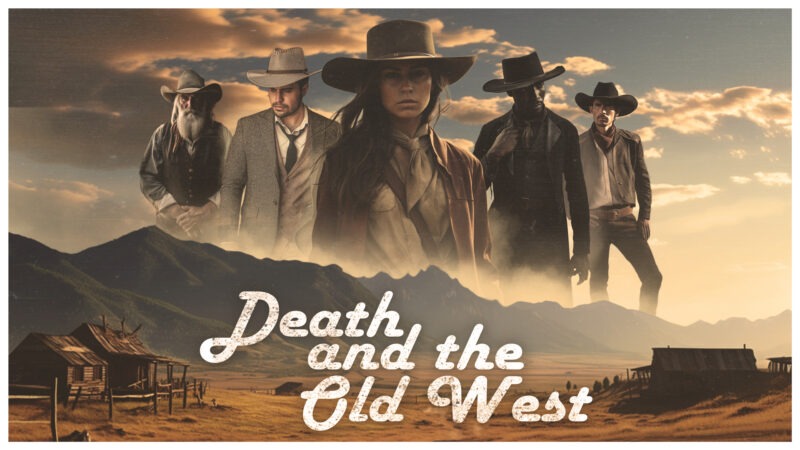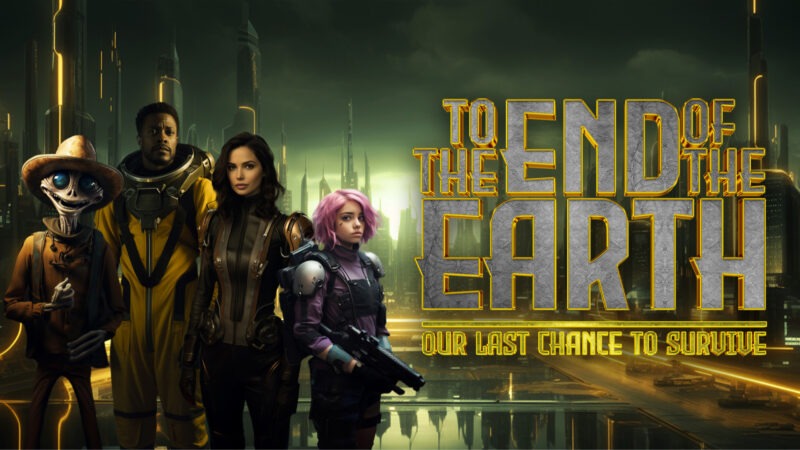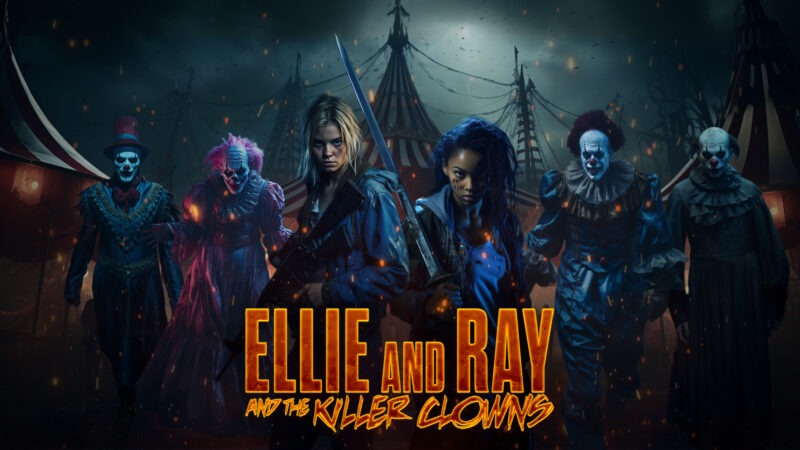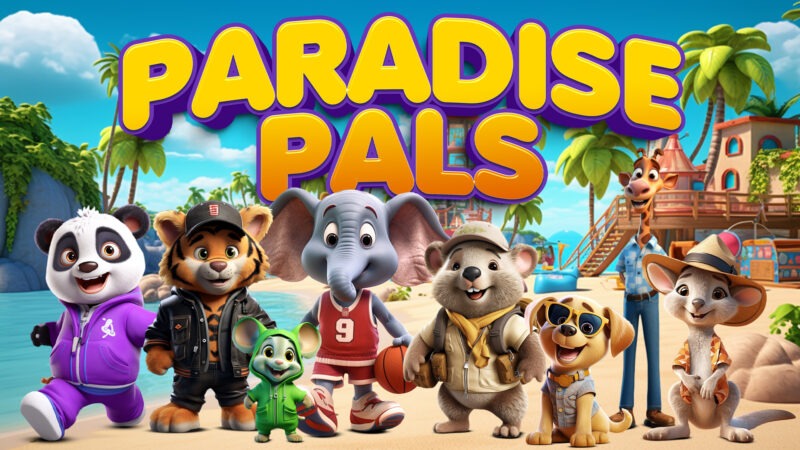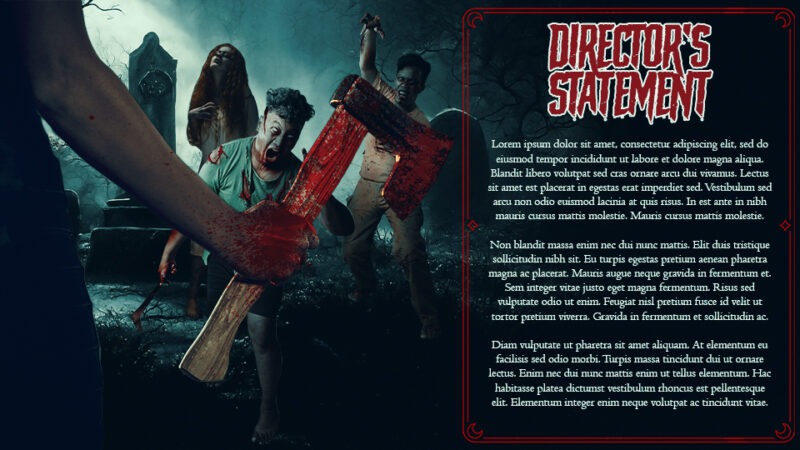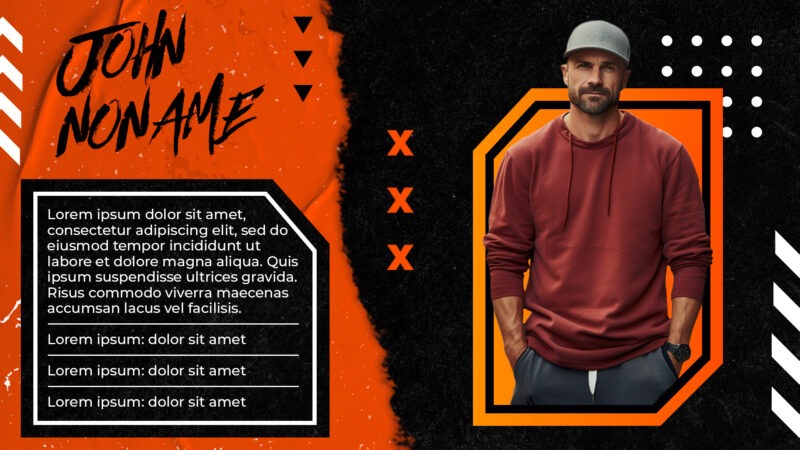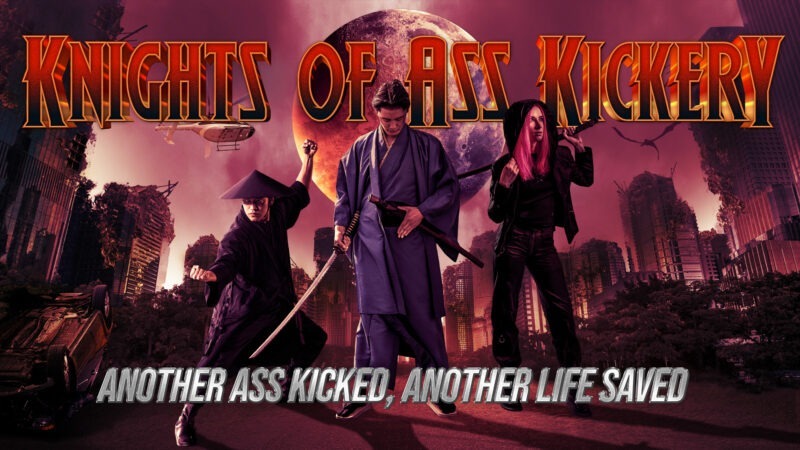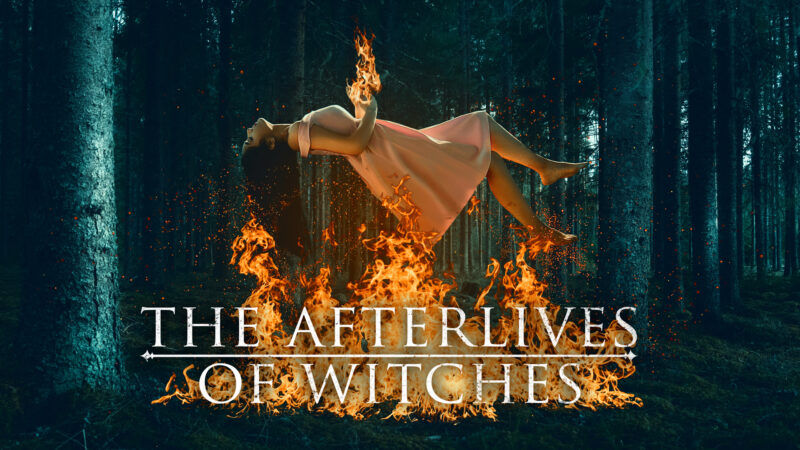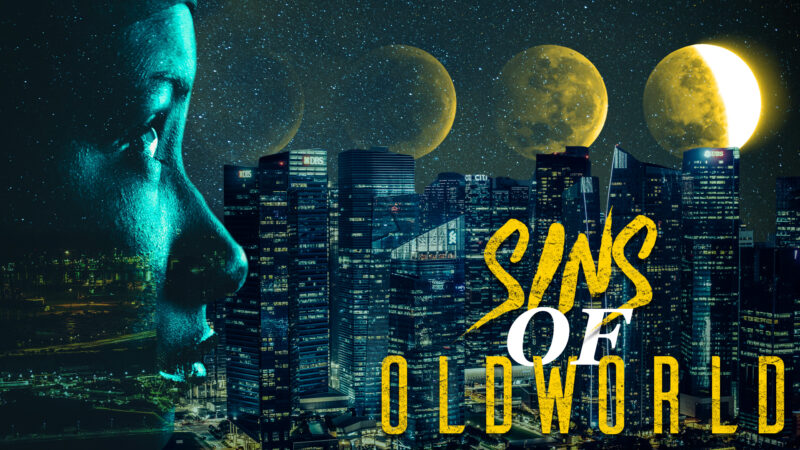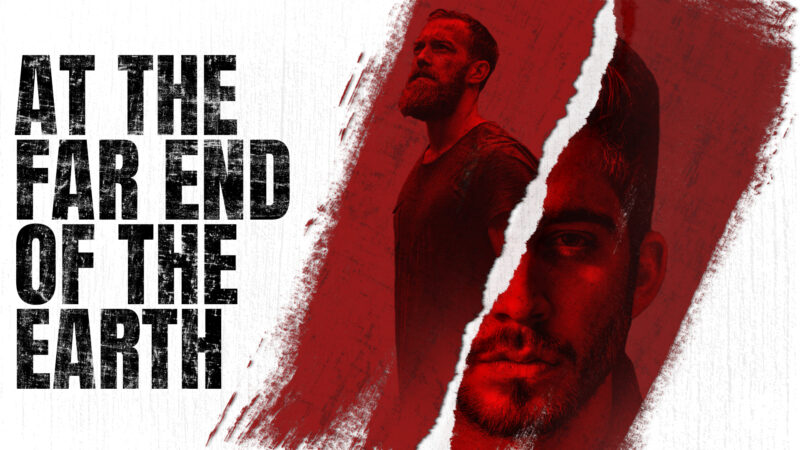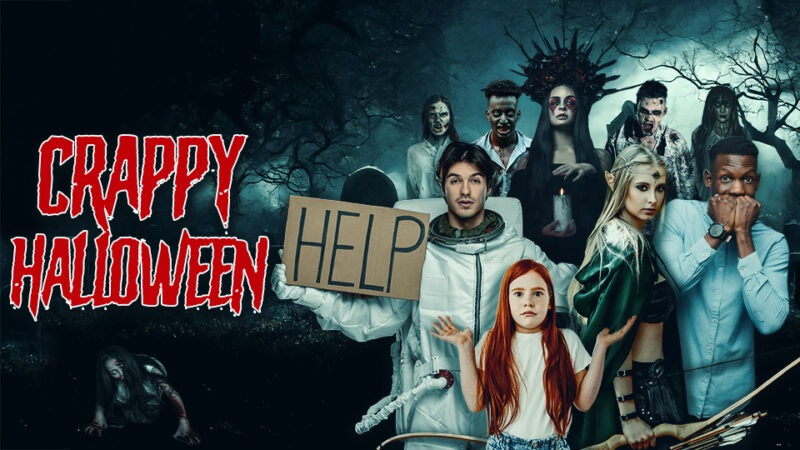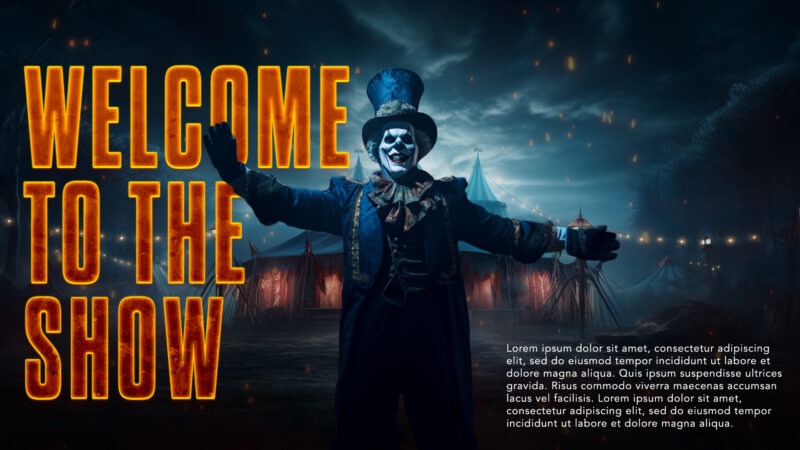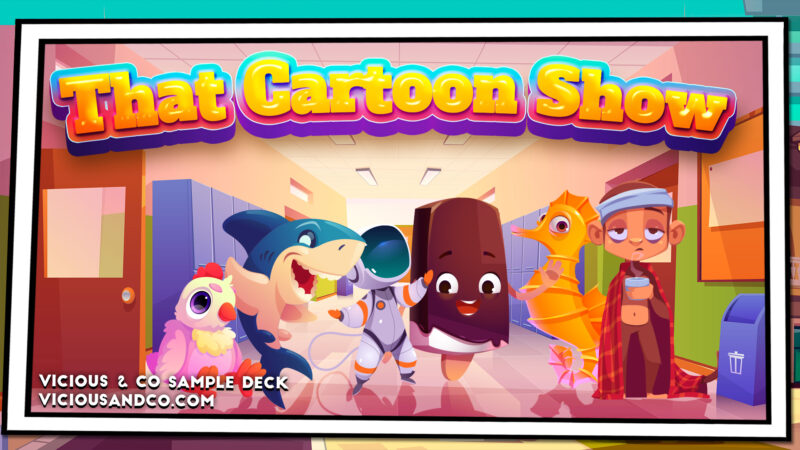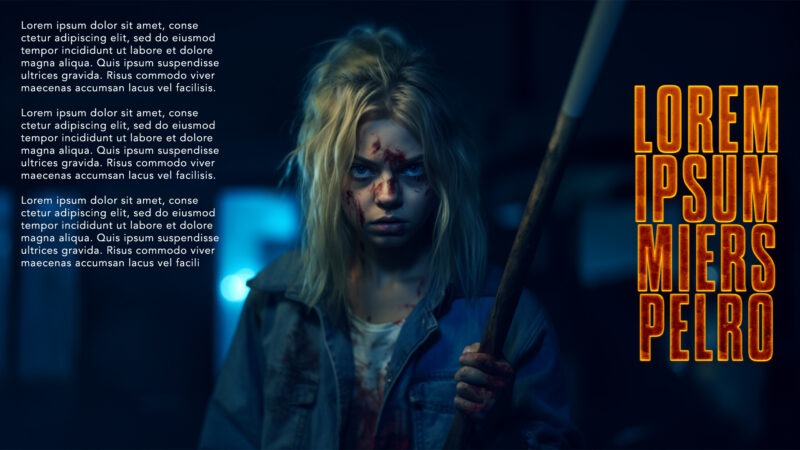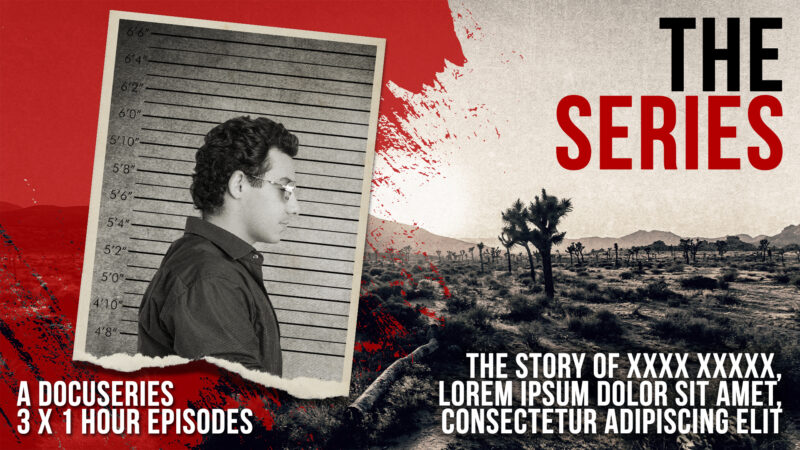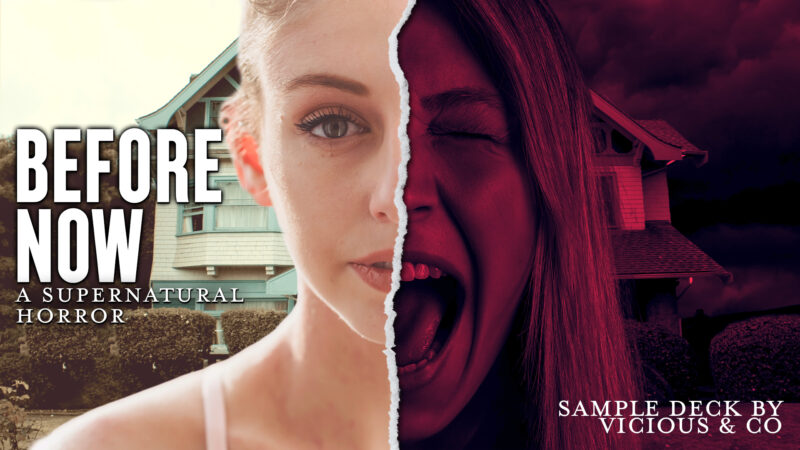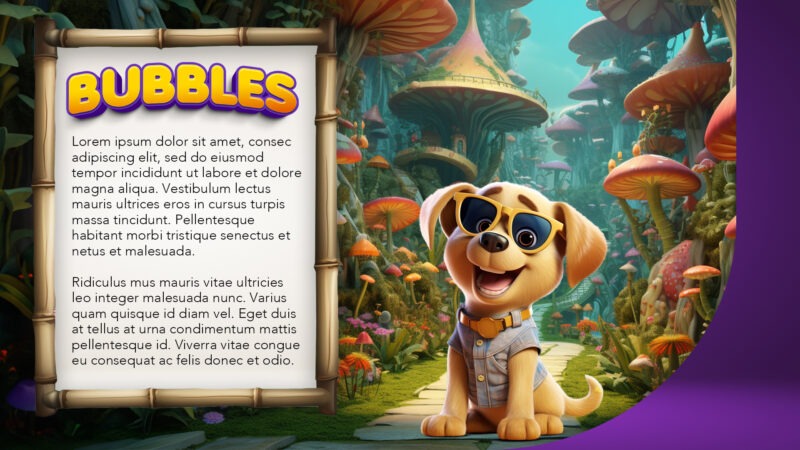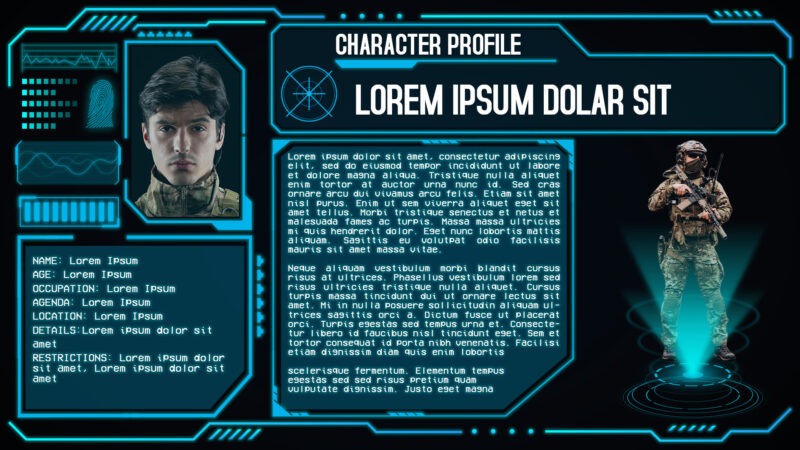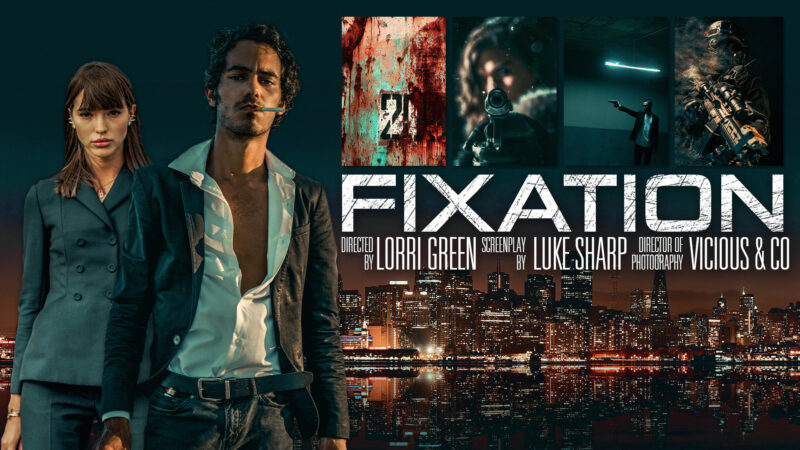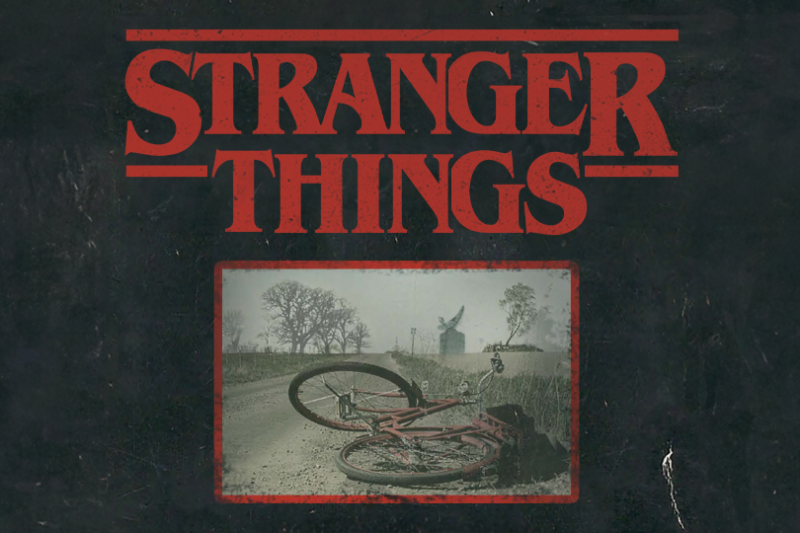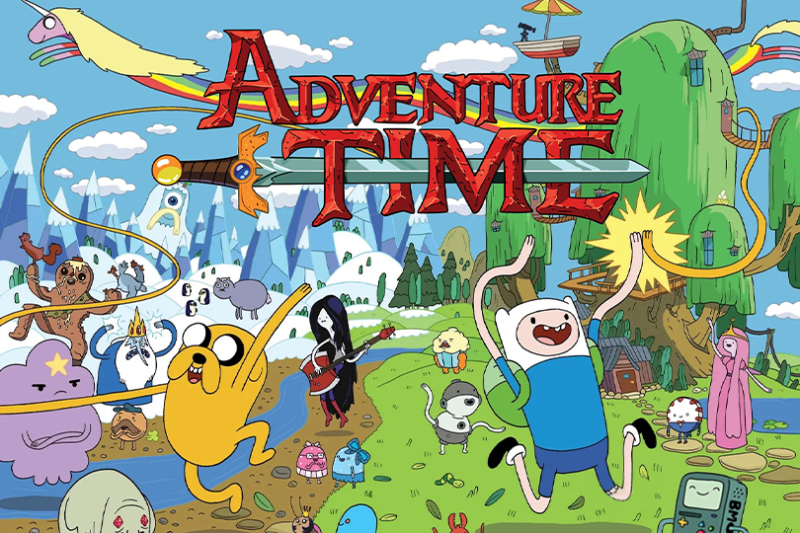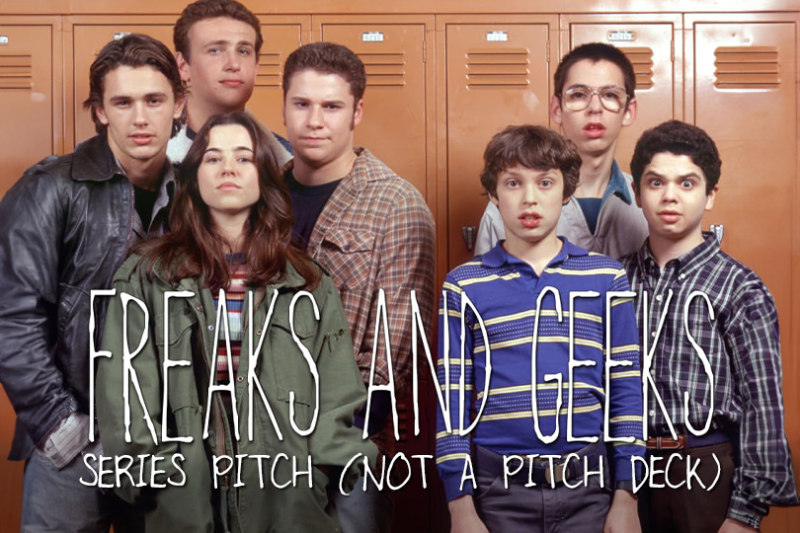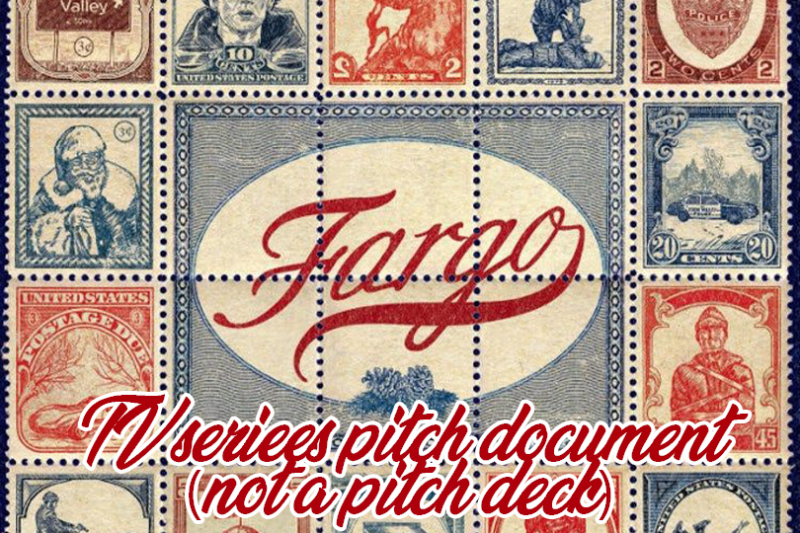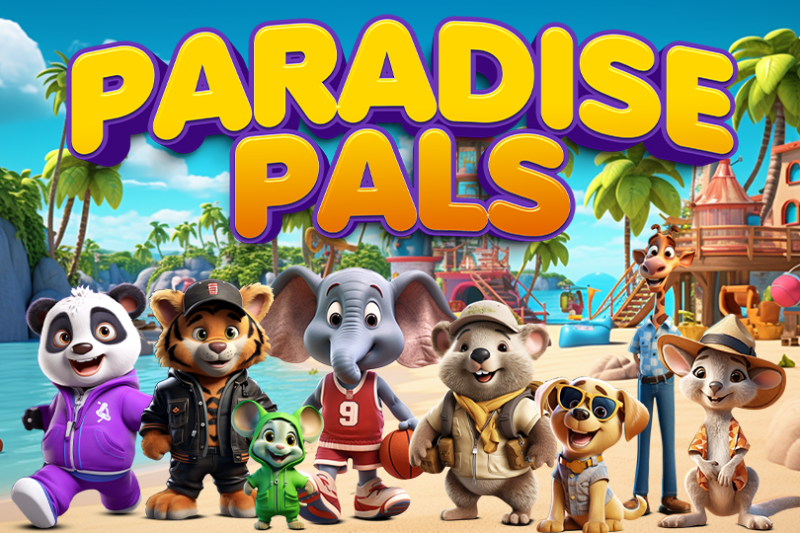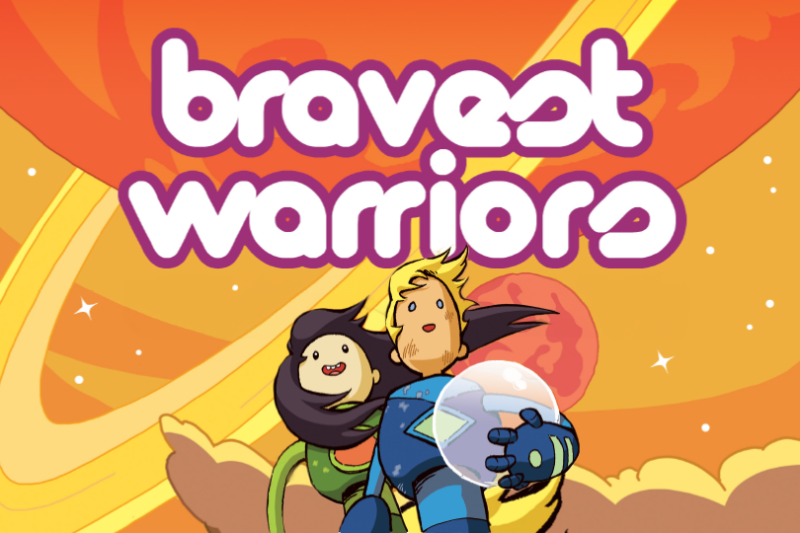FILM AND TV SHOW PITCH DECK PORTFOLIO
We strongly believe in one simple thing… TONE!
Do you have a Rom-Com? Horror? Sci-Fi? Film and TV decks should immerse the reader in the story world’s tone. Leave them feeling like they already know what your film or TV show is before they’ve even read a single word. That’s where we shine and why we build projects that help show what your project is and help you nail that pitch.
HOW TO CRAFT AN AMAZING TV SHOW PITCH DECK
So you’ve got an idea for a TV show and you’ve heard buzz about these things called pitch decks… but what does it take to make a winning TV show pitch deck, and do you really need one to pitch your TV show?
What is a TV show pitch deck?
A pitch deck is a visual presentation/text document used to present your TV show idea to potential buyers such as a production company, studio, or potential investors. It is typically delivered as a PDF but in more recent times it’s not uncommon to see interactive TV decks or projects that include video and are hosted online. Your ultimate goal with any successful pitch document is to leave a lasting impression and distill the essence of your show into a handful of clearly defined pages.
The use of decks in the film industry is fairly recent and is taken from startup companies and other businesses that commonly use them to pitch a new product, service, or idea.
What’s the difference between a TV show pitch deck and a TV show bible?
While there are some similarities between the two, a “pitch deck” is a document used when you initially pitch your series, while a TV series bible is a much longer document developed by the writer/s of a show that details all the ins and outs so that the cast, crew, producers, and everyone else understands all the important information about the show.
It’s also worth noting that many terms will often be used interchangeably depending on who you speak to. I’ve often heard a pitch deck referred to as a lookbook, pitch bible, visual treatment, pitch treatment, and a host of other names. What’s important is to clarify exactly what content the recipient is looking for in the document they’re requesting.
Successful TV Show Pitch Deck Examples
We’re linking to a few decks below including some from successful TV shows you might know. While we won’t break them down on this page, we do have some breakdowns on our other page here. A lot of newer writers head to the internet to try to find examples decks from famous shows and the truth is that there just aren’t that many online. They are typically kept in-house and aren’t sent out to the internet.
We have included the series pitches/proposals for Freaks and Geeks and Fargo. These are both written documents and not the visual presentations like we’re talking about. We include these because one of the biggest factors people overlook is the writing in deck — it’s not just about pretty pictures. Learn from these pitches.
Bring The Audience Into Your World
TV is a visual medium, and there’s a reason that pitch decks have become the gold standard in the industry — it lets you showcase your story as an immersive experience. Rather than simple words on a page, a pitch presentation lets your audience see a glimpse into the creative vision of what your story can be and bring the reader into the world of the show.
Be sure to utilize cinematic imagery and visual elements that capture what you would like your series to look like. The most common approach to this is to use images from existing shows and films that capture the look and feel of your project, however, interactive presentations and videos/trailers within presentations are now commonplace.
Even if you’re not an expert in graphic design, making a deck can be straightforward. Make it simple, and keep the design clean. If you need more guidance we have a guide available for free here.
What to include in your TV series Pitch Deck
The first rule of Pith Deck Club is… you don’t talk about Pitch Deck Club (Fight Club jokes anyone?). The actual first rule is that there are no rules. You don’t “have” to include anything specific. There are standard elements of a compelling pitch presentation that appear in most projects such as a logline, series summary, character descriptions, etc. but it really is up to you what to include that will help showcase your project in today’s TV landscape. Think about what makes your project unique.
Cover Page
Utilize the cover page to capture what your series is clearly. From our perspective here at Vicious & Co, we think a cover page should be as enticing as a streaming thumbnail or a movie poster. It should make you want to watch it immediately.
Utilize characters, setting, and other story elements that showcase what your story is about.
Format, Genre, and Target Audience
While these sections aren’t necessarily an actual page within your deck, it is important to establish the genre, format, and target audience of your series. You don’t want people to confuse your R-rated sci-fi horror series for a PG family-friendly sci-fi adventure series. Make sure they get it right by including this information!
Make sure the format of your show is clear. Is it 30 or 60 minutes, or somewhere in between given the the varying degree of episode length on streaming platforms? Is it a TV show, a feature film, or perhaps a documentary — make sure the reader knows.
Logline
Think of a logline as the elevator pitch for your TV show. It’s like a juicy little teaser that covers the basics – who’s in it, what do they want, and where does it all go down. It’s the sneak peek that hooks people in and leaves them craving more. So make it snappy, make it enticing, and make ’em want to keep reading.
Series Summary
Use this section to summarize your series. Unlike the logline, a series synopsis delves deeper into the plot, characters, themes, and major story arcs. It outlines the overall story, character development, and key events that unfold throughout the series.
While you’ll want to include key setup elements, it’s important to remember this isn’t just your pilot episode — this is about the series as a whole. You’ll cover the pilot episode later and you don’t want this to just be a double-up of the summary there.
Character Descriptions
Use this section to introduce the main characters. Unlike a film, where the audience only spends 2-ish hours watching the people on screen, the characters in a TV show are the beating of what keeps people coming back week after week. They are the foundation that can keep a show going for years… or even decades. Utilize these character pages to summarize who your characters are, and why the audience should care about them.
Pilot Summary
Make sure you include a summary of your pilot including all 3 acts and any vital information that helps set up the series or leaves the pilot on a cliffhanger.
Future Episodes
For the most part, you should include future episodes to show that your story has a place to go, however, for the most part before a show is greenlit these are all just theoretical, so you shouldn’t get too caught up in the nitty-gritty of exactly how these will play out. Show that you have somewhere to go beyond the pilot but don’t get stuck.
Future Seasons
By showcasing your plans for future seasons, you prove that your show has room to grow and the potential to captivate viewers over multiple seasons, increasing your chances of securing development deals or production contracts.
Comparable Projects
While it’s not mandatory to include comparables, it has become common practice. Why, you ask? Because it helps interested parties quickly understand what your project is… and isn’t. For example, references to buddy comedies or dark thrillers, make it clear that is also the tone of your project.
Tone & Style
How does your project look and feel? Every genre can be so many different things. If it’s a thriller, what type? Action-packed, slow burn, or dark and unnerving? If you’re stuck, think of how you would describe the tone or stylistic choices of other series.
The World
Where and when does your show exist? Is it in modern-day Miami, or perhaps a post-WWI Europe, or even set in a futuristic city in another galaxy? Make sure anything unique about this world that affects the story is also clear.
Other sections You Can Include
Visual Pages
Storyboards
Team bios
Team statements (why me/us, why this show, why now)
Themes and Issues
Contact Info (make sure people know where to reach you)
Anything else that will elevate your pitch or make your project unique!
TV Show Pitch Deck Templates
We are currently developing a large number of TV show pitch deck templates that will soon be available. Stay tuned and check back for them soon!


How to create a Pitch Deck?
How do you craft a pitch deck? Well, they’re usually made within a slideshow or graphic design software such as those listed below. In its most basic form, the deck is a combination of images and text on each page. While programs like Photoshop and InDesign give you more freedom in terms of design, regular slide programs will be easier to use for most people.
- PowerPoint
- Keynote
- Google Slides
- Canva
- Adobe Photoshop
- Adobe InDesign
What is a pitch package/packet?
While a pitch deck is a part of the process of getting a TV show made, it’s not the only thing you need to successfully get a show off the ground. A pitch package includes several other documents. As with everything there aren’t any specifics about what you have to include but it can include your pilot script, TV series show bible, and any other supplemental documents or info that help “sell” your idea, such as a teaser trailer, storyboards, costume design, etc.
The biggest thing newer screenwriters will often overlook is just how important industry connections and experience are, and one of the biggest parts of getting a TV show “picked up” is the people attached to it. As part of a pitch package, developing the strongest team possible attached to a show (including actors, producers, showrunner/s, and writers) before taking the project to production companies, streamers, or networks is essential. As more high profile industry people become attached to a project it has a higher chance of getting made. Those people have worked in the industry for years, or even decades, and know what it takes to successfully get a project from the page to the screen.
When do I need a pitch deck?
The simplest answer to this question is, “Do you have anyone asking for a pitch deck?” If the answer is “no,” then you most likely don’t need a deck… yet. If you’re actively pitching a TV show and producers or others in the industry are requesting a deck, then it might be time to put one together.
In terms of the “pitching process” and when you need a deck, that can also differ. The industry is built on connections and trust. Producers or production companies may request a deck prior to any kind of pitch meeting, or if a writer pitches something while in the room, they may ask for a deck after the meeting to follow up on a particular idea.
What's the difference between a feature film deck and a TV series pitch deck?
The real difference between these two comes down to the amount of content that is included. For a film, you are only spending a few hours with these characters and so the content is going to be shorter for the initial pitch. However, for TV, we need to know more about the characters that viewers are going to potentially be spending years watching. Unlike a movie, we also need to know episode summaries and future seasons.
What is an interactive TV deck?
As the industry changes so does the approach to pitching and while a pitch deck is one approach an interactive deck, sizzle reel, a proof of concept short, or any number of other approaches are all ways that you can help showcase your project to potentially interested parties.
An interactive deck is much like a pitch but uses moving elements such as video to help elevate the pitch.
Caught somewhere between a “moving pitch deck” and an interactive deck, the original “A Quiet Place” pitch trailer uses static images in a moving video format to show their idea, which ended up being pretty close to the look of the final movie.
Before you start your deck...
Before you jump ahead to make a TV show pitch, remember a pitch is only as good as the project itself. You can put forward an amazing-looking project that entices anyone who views it but that is going to lead to them wanting to read the script. While flashy visuals can take you so far it’s the quality of the actual script that will get you across the finish line. Hone your screenwriting craft first and make sure the story you are presenting is as good as it can be.
Study the current TV landscape. What are the current trends in the TV industry? What is missing and what are buyers looking for? Where can your unique show concept fit and what can you do to make your pitch stand out?
More Frequently Asked Questions
On our other page covering TV and Film Pitch Decks we have a FAQ section that answers a lot of questions. If you have questions take a look over there.
We hope this information can help you to win pitches and help you develop your TV show deck. If one of your questions isn’t answered, feel free to reach out.


